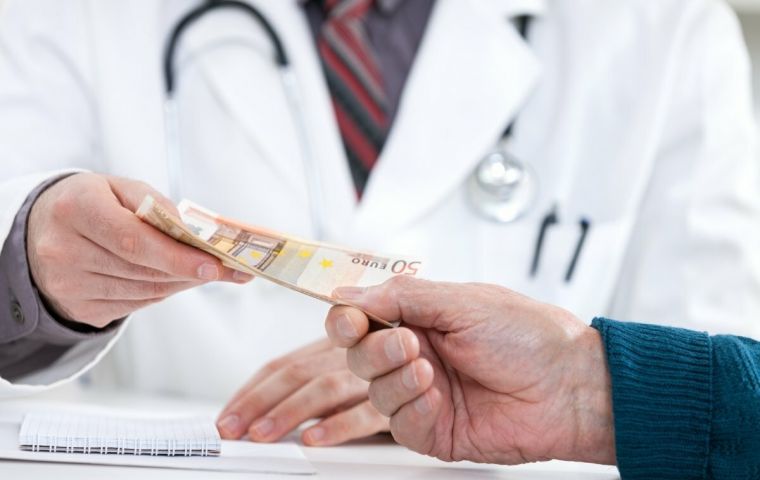MercoPress. South Atlantic News Agency
“Health care corruption” in Europe worsened during the pandemic, Transparency International report
 The survey found that 29% of the bloc's residents have used personal connections such as well-connected friends or family to receive medical attention.
The survey found that 29% of the bloc's residents have used personal connections such as well-connected friends or family to receive medical attention. The coronavirus pandemic has worsened corruption across the European Union, Transparency International said in its annual Global Corruption Barometer report for the EU, pointing out that health care has become a “hotspot for corruption”.
Transparency International, headquartered in the German capital of Berlin, surveyed more than 40,000 people in the EU's 27 member states between October and December 2020.
The survey found that 29% of the bloc's residents have used personal connections such as well-connected friends or family to receive medical attention and 6% of people paid an outright bribe to receive health care.
Bribery rates in health care were highest in Romania (22%) and Bulgaria (19%), while relying on personal connections occurred most often in the Czech Republic (54%) and Portugal (46%).
Many respondents also believed that their governments weren't handling the pandemic in a transparent way. In France, Poland and Spain, 60% of respondents or more said their governments acted in a non-transparent manner.
“Lives can be lost when connected people get a COVID-19 vaccine or medical treatment before those with more urgent needs,” the report warned. “It's crucial that governments across the EU redouble their efforts to ensure a fair and equitable recovery from the ongoing pandemic,” it added.
The survey singled out Hungary and Poland as countries using the pandemic as “an excuse to undermine democracy” by imposing measures that weaken democratic institutions.
Politicians saw the health crisis “as a chance to make a profit,” the watchdog said, citing lobbying scandals surrounding several German lawmakers.
Beyond the coronavirus pandemic, the survey found that a third of EU residents think corruption as a whole is worsening in their country, with almost half saying their government was doing a poor job at handling graft. Respondents were particularly concerned about “cozy relationships” between governments and the private sector and tax cuts.
The survey found that in Germany, one in four people perceive that corruption is worsening. The survey said 26.4% of respondents believed that the level of corruption in Germany had increased over the past year. Over a third consider corruption within the federal German government to be a problem.
The report found 79.1% of respondents have basic trust in the German government. Respondents also had a high level of trust in the police and judiciary. However, 61.6% have the perception that the German government is largely controlled by a few large interest groups.
More than one in three suspected that all or most business leaders are involved in corruption, while 57.5% suspect that companies use money or connections to land public contracts.
“These are perceptual values,” said chairman of Transparency Germany Hartmut Bäumer. They therefore do not reflect the actual extent of corruption problems in Germany, he added.




Top Comments
Disclaimer & comment rulesCommenting for this story is now closed.
If you have a Facebook account, become a fan and comment on our Facebook Page!